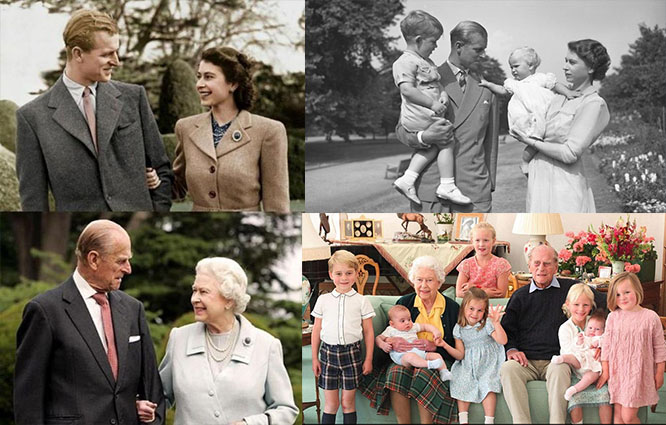No doubt we have all reflected on the meaning of life and what impact we have had on the world in our more contemplative moments. Few have had more impact than Prince Philip right across the world. Around 14 million people watched his funeral in the United Kingdom and many millions more watched it worldwide (at least 7.5 million more on BBC global live stream). So perhaps it is reasonable to reflect on the lessons we might learn from this great man.
The ability to be flexible and to adapt is right up there. After a difficult and dangerous childhood, with his family exiled from Greece when he was eighteen months old, his education took him across three countries, France, Germany and Great Britain. He joined the Royal Navy in 1939 aged 18 and wasimmediately thrust into the frontline of a world war. Eight years later he was married into the British Royalty and five years later had to give up his career to be the loyal consort to Her Majesty Queen Elizabeth. Quite some start in life and one which many of us would have found daunting.
Bravery is another key feature. Aged 19 in 1940 he was a midshipman on HMS Ramillies defending convoys in the Indian Ocean. He was involved in the Greek campaign in late 1940 and was at the battle of Crete in 1941 where he was mentioned in dispatches after the Battle of Matapan. He was involved in the invasion of Sicily in 1943 and later saw actionin destroyers with the British Pacific Fleet.
Putting others first. Prince Philip was always thinking of others, especially young people. He founded The Duke of Edinburgh’s Awards (DofE) in 1956 and the scheme now runs in 144 countries with some 295,490 children participating in the 2019/20 season alone. As one award winner said, “The DofE has changed my life. It made me the person I am today. It gave me the experience and confidence to talk to new people. It made me realise how resilient and strong I am.”
The ability to show compassion. There are many stories that have come out of the many charities in which Prince Philip was involved but the best is much closer to home. After Diana was killed in a car crash in Paris in 1997 Prince Philip shielded his two grandsons from the media. As senior politicians tried to make much of the period of mourning and the funeral for political ends his grandchildren simply wanted to mourn their mother. Undecided as to whether they should walk behind the coffin or not Prince Philip told the oldest grandson, William, “If you don’t walk, I think you’ll regret it later. If I walk, will you walk with me?” On the day of the funeral, Prince Philip, grandsons William and Harry, Prince Charles, and Diana’s brother, Earl Spencer, walked through London behind the hearse.
Putting others at ease. There was none of the pomposity and grandstanding from Prince Philip that is so commonplace amongst our preening politicians. Wherever he went Prince Philip was able to put people at ease. There is a lovely story told by a White House butler from 1979 where, on a visit to the US President’s official residence, Prince Philip poured the butler and his colleague drinks whilst engaging them in conversation. There are numerous other stories of people who were scared stiff of meeting royalty but who all attest that within seconds of meeting him they felt like they were talking to an old friend.
Of course he had an acute sense of humour. That humour got him into trouble sometimes, but those that were on the sharp end of his wit are all clear that it was his attempt at putting them at their ease. My favourite story is of the wheelchair bound woman who was wrapped in foil (a space blanket) on a very cold day as she waited to catch a glimpse of the royal couple. The Prince spotted her, walked up to her and with a big grin on his face said “I see that you have come oven ready.” Naturally the ‘ice’ was broken and everyone relaxed.
A sense of adventure. During his long life Prince Philip never held back. He learnt to fly, to ride, play Polo, compete in carriage driving, was an active artist, wrote numerous books, gave dozens of speeches and was a keen yachtsman.
Most of all he was loyal and thoughtful. Yes, he could be grumpy especially first thing in the morning but he was Queen Elizabeth’s rock and he never ever let her down. This hasenabled her to do her job as monarch and Head of the Commonwealth so very effectively over such a long reign. Nor did he ever let the British people or the Commonwealth down. He served without complaint, often being expected to do some excruciatingly boring things on state visits.
He was, in short, a gentleman of the old school. If only we had a few more of them today, especially in our political and business classes.





